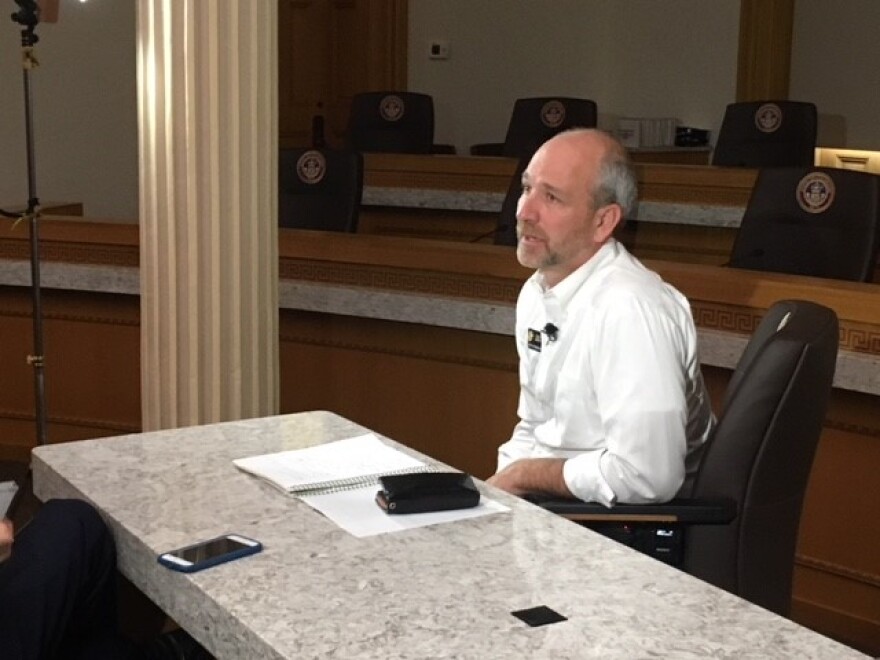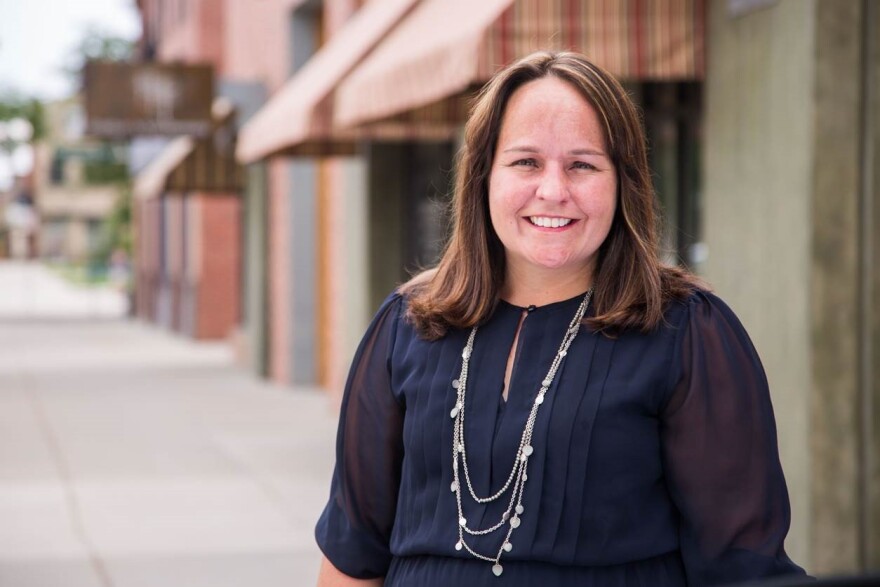Westminster Rep. Faith Winter and other women who’ve worked at Colorado’s capitol have their #MeToo moments.
That movement began in early October when allegations of sexual misconduct against Hollywood filmmaker Harvey Weinstein resulted in women coming forward with their stories about harassment by powerful men in a variety of workplaces, including NPR.
Winter and others came forward publicly to KUNC this month, alleging at least three male lawmakers had engaged in sexual harassment.
“The 'Me Too' movement has demonstrated how many women have been impacted by these types of actions,” said House Speaker Crisanta Duran, a Denver Democrat. “For far too long, at times there could be a good old boys club, which is absolutely unacceptable.”
But the allegations are also highlighting a secretive and likely little-used process that legislative leaders say needs to be improved.
The General Assembly’s workplace harassment policy prevents virtually anyone -- except those who file a complaint or are charged with a violation -- from talking about what’s going on.
"Sexual harassment is not about sex, it's about power and it's about controlling people."
Rep. Faith Winter
That’s been the case for years, said Alice Madden, who served as House majority leader from 2005 through 2008.
“My recollection is that there were some issues with female staff but they never wanted to file a complaint because they had to continue working with these people and their jobs depended on it,” Madden said. “Or they felt there would be some sort of retribution and they wouldn't be able to advance in their jobs.”
Colorado is among many states with a policy on sexual harassment. And it’s among 16 states where women have come forward to accuse male lawmakers of harassment in recent weeks, according to Stateline.
Of those 16 states facing complaints, only Colorado and four others conduct regular training aimed at preventing sexual harassment.
The legislature adopted a sexual harassment policy in 1994, a few years after Anita Hill testified in the U.S. Senate that now Supreme Court Justice Clarence Thomas harassed her when she worked for him.
The policy was revised in 2013 and includes definitions of verbal, nonverbal and physical harassment.
But both policies put the decision making power over lawmakers in the hands of legislative leaders. Both prohibit retaliation against anyone who files the complaint.
And both policies emphasize confidentiality surrounding such complaints.
KUNC has filed an open records request asking for the number of complaints filed under the harassment policies. As of publication, no response has been received.
There are just a couple of news accounts of harassment allegations in the legislature.
In 2010, a female lobbyist filed a formal sexual harassment complaint against then-Rep. Wes McKinley. House Speaker Terrance Carroll ordered McKinley to attend private training to remedy the manner, according to news reports. He was re-elected that fall.
In 2008, then-Rep. Michael Garcia resigned after a lobbyist accused the Aurora Democrat of exposing himself at a bar. It’s unclear if a formal complaint was filed in that case. Andrew Romanoff, who was House speaker at the time, said he was instructed by Legislative Legal Services that he couldn’t discuss that case or whether any similar incidents were reported.

Winter accused Rep. Steve Lebsock, a Thornton Democrat, of making lewd remarks and grabbing her at an end-of-session party in 2016.
She said reported the incident to then-House Speaker Dickie Lee Hullinghorst in less than a week. Hullinghorst and others in leadership worked out an agreement with Lebsock in which he apologized, said he would not drink at legislative events and agreed such behavior wouldn’t happen again.
Winter said she considered filing a formal complaint initially but decided against it.
“I was scared of his vindictiveness and his willingness to be honest through the process, and did not want to move forward with the process at that time,” she said.
But after a #MeToo Facebook posting, Winter learned of other women who said they’d been mistreated by Lebsock. So she went public.
As Duran and others, including Gov. John Hickenlooper, called for his resignation, Lebsock questioned why Winter hadn’t filed a formal complaint. So she did.
Employers Council, a human resources and employment law collective that serves 4,000 employers, will investigate that complaint and report back to Duran, Winter said.
Legislative policy allows leadership to consider how to discipline lawmakers. But because legislators are elected, they can’t be fired. That presents another issue, said Lorrie Ray, director of member management for Employers Council.
“If there is an elected official, even if they won’t quit, the employer still will need to manage that situation so no employees are being harassed because it’s still the employer’s duty to manage that,” she said.
Both Duran and Senate President Kevin Grantham issued statements last week calling for revisions to the legislature’s harassment policy. Both want lawmakers to get sexual harassment training every year, and Duran would go beyond that.
“I believe that lobbyists and members of the press, people who work regularly in the building should be invited to attend it as well if they would like to so that everybody understands how these policies work and we have a greater awareness of this issue,” Duran said.
Duran and Grantham also are suggesting some sort of confidential reporting system that might pick up patterns of harassment. And Duran would like to see responsibility for oversight removed from legislative leadership to a third party.
Winter said harassment isn’t necessarily widespread at the Capitol.
“Honestly the climate has been very supportive,” she said. “There are four or five people who are all on the mythical list that interns are warned not to be alone with.
“There’s plenty of consensual relationships and rumors and gossip mill at the Capitol,” she added. “Sexual harassment is not about sex, it’s about power and it’s about controlling people."





